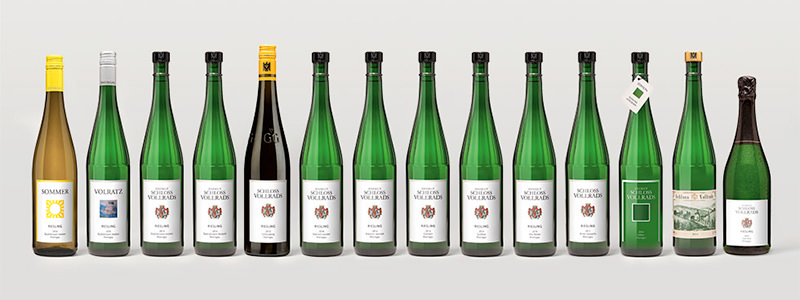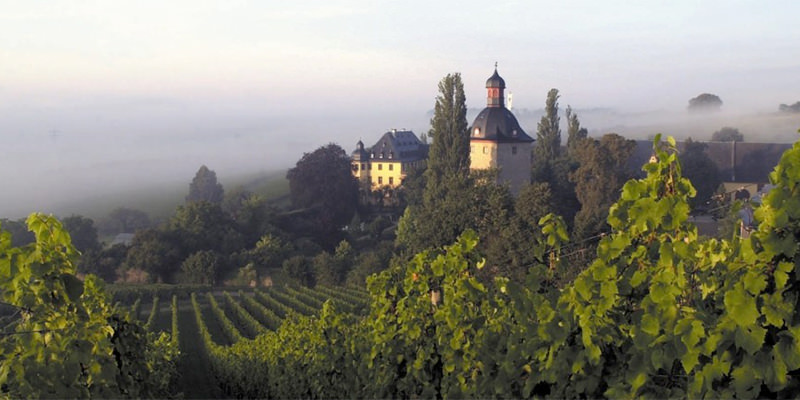Though many wineries vie for this title, Schloss Vollrads in Germany’s Rheingau region has the distinction of being among the oldest commercially and continuously operating wineries in the world. In 1096, the year of the First Crusade, the already-powerful Greiffenclau family undertook the endeavor of winemaking in the Rheingau, Germany’s Rhine district. The descendents of the Lords of Winkel, the Greiffenclaus made their first sale of wine in 1211 to the St. Victor Monastery in nearby Mainz, which is now a large German city and the country’s wine capital.
About a hundred and twenty years after its first wine sale, the Greiffenclaus decided to go all in and build a castle on Roman foundations. The castle, or “schloss,” is still standing today, and it’s widely recognized as a representation of Germany’s wine industry.
The winery continued to achieve moderate growth until 1862, a year that marked the start of a successful period in the history of Schloss’ wine production. That year, the Silesian count Huga von Matuschka married Sophie von Greiffenclau. This lead to the first-ever union of name and seal, creating the name Count von Matuschka-Grieffenclau, the new owner of Schloss Vollrads.
Though quite the power union, no Matuschka-Grieffenclau ever did more for the international reputation of the estate than the contemporary Count Erwein Matuschka-Grieffenclau, who launched a worldwide effort to spread the gospel of German wine with food, and of his estate Schloss Vollrads. But in 1997, the Count tragically committed suicide, leaving the future of Schloss Vollrads up in the air. Luckily its heritage was saved by a large German bank which, in 1999 hired prominent winemaker Dr. Rowald Hepp as managing director. Dr. Hepp’s ingenuity brought the estate back to the top in terms of quality, and today, Schloss Vollrads is making some of the most vibrant Rieslings in the Rhine district of Germany.
One of Dr. Hepp’s genius innovations was to simplify the labels on wine bottles for the benefit of the consumer. There’s long been a complicated and arcane system of classification on German labels, one that includes small Gothic print. Now, the details of each bottle’s history, including what town the grapes came from and which specific vineyard, is gone. Some dedicated somms even lament this absence, claiming they’re left with no idea 0f what’s in the bottle. In addition, Hepp insisted on using very short and simple phrases, ones based in German terminology but that used English at times, to clearly designate the bottle’s contents.
Here’s what their simpler, pared down labels look like today:

Now for the wines themselves. As mentioned, the Rheingau-based winery produces a wide range of Riesling wines (in fact, the Reisling grape variety constitutes 78 % of the vineyard. Nearly 13% are planted with spätburgunder (pinot noir), Germany’s most important red wine grape). The winery attributes its distinct flavor to its unique terroir: six different geological formations layer in the Rheingau to allow vine roots to take from the most diverse minerals. Schloss Vollrads produces ten to fifteen different wines per year, from the estate wine through Cabinet and Edition up to Spätlese and Auslese. If conditions permit, they also produce special qualities such as Trockenbeerenauslese and Eiswein.
The best time to visit the winery–and we suggest you do, as it offers tours, tastings, and food pairings–is in the summer, when the landscape is lush, the weather is most comfortable, and cafes with outdoor seating along the Rhine are full and lively. We recommend going during the Rheingau Musik Festival, when the winery doubles as a concert stage.

